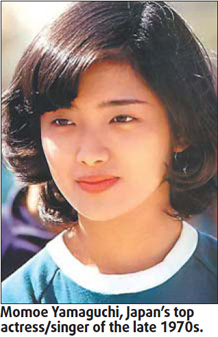China's J-lovers
By Raymond Zhou (China Daily)
2009-08-11 09:51
 |
Large Medium Small |

It all started in the early 1980s when Sino-Japanese relations were enjoying a rare warm breeze. A Guangdong TV station aired Akai Giwaku (血疑), a melodrama about a teenage girl who was poisoned by radiation and suffered an extended near-death breakdown before finally succumbing to it. It starred Momoe Yamaguchi (山口百惠), Japan's top idol at the time, who retired from the entertainment business in 1980, at the tender age of 21.
Yamaguchi, with her guileless charm, created in China an avalanche of audience interest. Her music, often used as theme songs for her movies and in TV dramas, received non-stop airplay and was covered by many Chinese singers, including Hong Kong's Anita Mui. Every Japanese visitor was probed for information about our mutual favorite star, who vanished from the spotlight and into full-time homemaking.
In the 1980s, television penetration in China was growing but most sets had just three channels. A popular show literally had half the nation watching. J-pop was not tracked quite so closely, but it made its mark.
A few years ago, Shanghai held a concert for nostalgia lovers with singers from Japan. It was met with derision online, but youngsters today can hardly understand how popular it was in the newly opened mainland. One of these songs, Subaru (星), by Shinji Tanimura (谷村新司), was hummed by a character in last year's runaway hit movie If You Are the One.